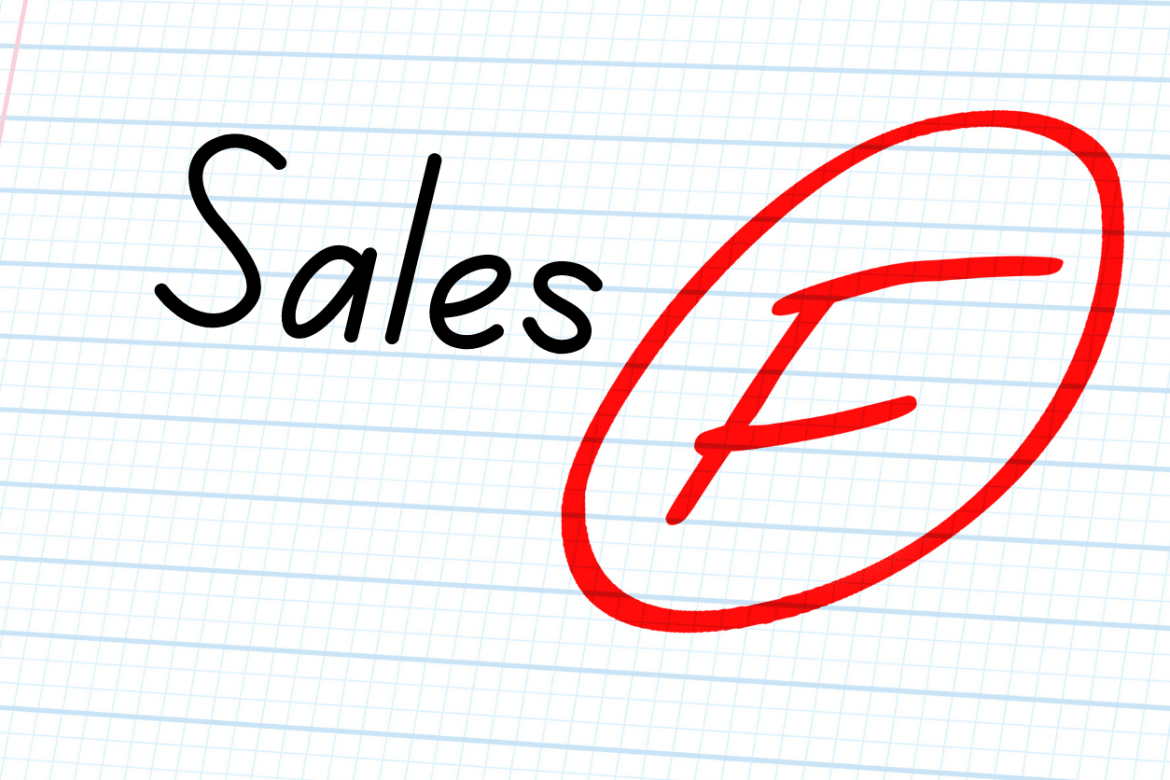How to Fail at Sales: 4 Traits to Kill Your Career
People who choose sales as a career share many similar personality traits and characteristics. Anyone who is outgoing and doesn’t want to follow a traditional 9–5 routine is usually drawn to sales. Their desire for the no-limit income potential is best summed up with the mantra, “You eat what you kill.” The thrill of chasing opportunities to make more money as opposed to being limited by a certain salary is a powerful motivator.
If you have the character traits generally required for sales, great! You have a clear advantage. However, this “born salesperson” personality can only take you so far. If you want to be successful, you must also have the desire to succeed. It’s important to be dedicated to the follow-through, have respect for your customers, know your product benefits and features, and have the integrity it will take to not fail in sales.
Natural personality traits give you a strong advantage in sales, but you can’t rely on them alone. Here are four character traits that will guarantee you fail at sales if you aren’t careful.
1. Having a poor work ethic.
Being likable is important in the sales industry, but maintaining trust is pivotal. Likability will get you a meeting but maintaining trust will continue the professional relationship. A strong connection will lead to referrals and repeat business.
For example, let’s say you are in the promotional products sales industry. You (finally!) land a successful meeting with a buying manager you have been trying to connect with. Offering a creative plan to support an upcoming event their business has planned won you the contract. Unfortunately, you miss sending the order deadline to your vendor. Now the promotional items will not arrive in time as you promised, and the creative plan you charmed this buying manager with is wasted.
Making deadlines, being truthful, having integrity are crucial characteristics in the sales industry. You must have a good work ethic to survive in sales. Being likable cannot overcome job incompetence.
2. Being unorganized.
Living an unorganized professional life and having poor work ethics are similar, and have similar negative lasting impressions with customers. However, the difference is that one is a system of lazy moral principles (poor work ethic), and one is a habit that can be easily avoided and/or corrected (being unorganized). Do not allow yourself to get into lazy habits and find yourself failing. Create a good, working organizational flow and you will reap the benefits.
3. Assuming potential customers need you.
Thanks to readily-available reviews, comparisons, and information, customers are more informed about products they want to buy than ever before. All it takes is a simple online search. This turns some potential customers into DIYers in many industries that used to require insight from sales individuals. Plus, with ever-evolving technology and social media platforms, it’s easier than ever for your competition to get in touch with your customer.
Be aware of this and do something a keyboard and screen can’t do: deliver an impeccable level of personalized customer service. Don’t give them a reason to search for other opportunities. Go beyond the sale and find solutions and deliver on them. Know your clients well enough to provide personalized expertise that keeps them coming back to you.
4. Being a workaholic.
On the opposite end of poor work ethic is working so much it become an unhealthy obsession. It’s critical to find your work/life balance. There is no one formula that works for everyone. Finding your personal balance between work and play that works for you is key. It’s the main way to sustain longevity in the sales industry. (Well, in any industry!)
There are many factors that lead to an unbalance. Some are the desire to get ahead, wanting to gain higher and higher profits, and the unique demands of your sales profession. While it’s possible to work at a faster pace for a short time, be sure it doesn’t become the norm.
The consequences of a poor work/life balance are poor health, lost time with loved ones, and extreme fatigue—all of which will lead to burnout. Be diligent about finding your own healthy balance by setting limits. Allow for relationships and activities outside your work life ample time to grow and flourish.


